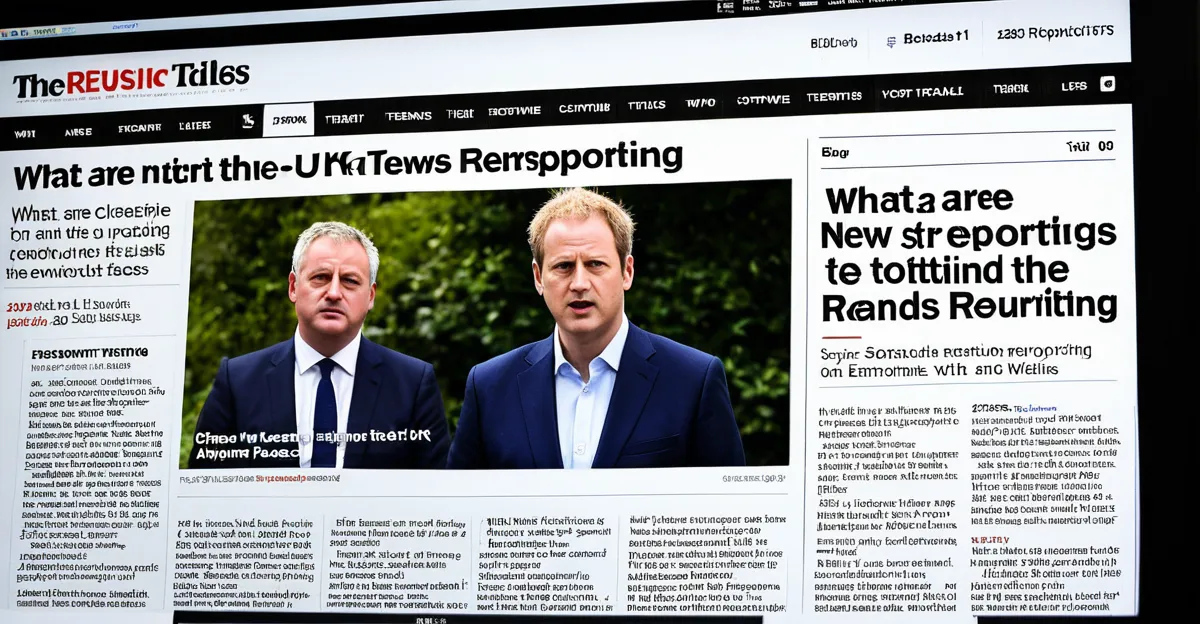Current Digital Transformation in UK News Reporting
Digital journalism UK is undergoing significant evolution as newsrooms embrace newsroom digitalisation through the adoption of advanced media technology trends. UK newsrooms are increasingly integrating digital tools like cloud-based content management systems, real-time analytics, and automation platforms. These technologies streamline operations and enhance the speed and accuracy of news production.
A key aspect of this digital transformation is the widespread implementation of mobile-first content strategies. News organizations design stories optimized for smartphones and tablets to meet the demands of an audience that accesses news on the go. Automation also plays a pivotal role, especially in generating routine reports such as financial summaries or sports updates, freeing journalists to focus on in-depth reporting.
Additional reading : What are the UK’s strategies for reducing urban pollution?
Leading UK media outlets like the BBC and The Guardian exemplify successful digital newsroom transformations by leveraging AI-driven analytics to tailor content and improve audience engagement. These examples illustrate how digital journalism UK continues to evolve, with newsroom digitalisation and media technology trends driving efficiencies, innovation, and more personalized news experiences.
The Influence of Social Media on News Dissemination
Social media platforms reshaping how news travels and engages audiences
Also read : Are Regional Traditions in the UK Becoming a Thing of the Past?
Social media news UK has become a fundamental channel for breaking stories at unprecedented speeds. Platforms like Twitter, Facebook, and Instagram act as primary sources where news can go viral within minutes. This rapid spread highlights the significance of viral news trends, which often amplify breaking news beyond traditional media reach.
News organisations monitor journalism social platforms to track real-time developments and engage with audiences directly. This interaction shapes how stories evolve and influence public opinion. Social media also shifts news consumption patterns, with many users preferring brief updates or multimedia content tailored for mobile devices, aligning with ongoing digital journalism UK transformations.
User-generated content and citizen journalism contribute significantly to news dissemination, especially during emergencies or events where professional journalists may not be present. These contributions can add valuable perspectives but also pose verification challenges, demanding vigilant editorial oversight. Embracing social media news UK enables newsrooms to adapt to changing audience behaviours and exploit media technology trends effectively, ensuring timely, relevant, and audience-centric reporting.
Impact of Artificial Intelligence and Automation
Exploring AI’s role in reshaping newsrooms across the UK
AI in UK journalism has transformed newsroom automation by enabling faster and more efficient news gathering, verification, and content creation. For instance, algorithms scan large datasets to detect emerging trends or verify facts, reducing human error and accelerating reporting. This data-driven reporting improves accuracy and helps newsrooms prioritize stories that resonate with audiences.
One key benefit of newsroom automation is relieving journalists from routine tasks—such as generating stock market summaries or sports scores—so they can focus on investigative work. However, challenges persist, including ethical concerns over reliance on algorithms and potential biases encoded in AI systems. UK newsrooms must carefully balance technology use with editorial judgement to maintain credibility.
Notable examples of AI-powered journalism in the UK include predictive analytics tools used by the BBC to tailor content and AI-driven moderation systems on platforms to filter misinformation. Together, these innovations showcase how AI advances media technology trends, driving both operational efficiency and enhanced audience engagement in digital journalism UK.








